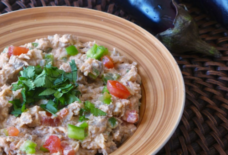A Roadmap to Democracy: How Arab Americans Can Win in 2020
By: Hamza Khan/Arab America Contributing Writer
“All politics is local,” quipped the Speaker of the House Tip O’Neil in the heyday of his power. Indeed, this is a lesson many of us are still learning today in the Arab and greater immigrant communities. While the hopes were high in 2018 that we would add several members to Congress hailing of Arab background, and even a governor from Michigan, this was not to be.
In previous election cycles, we have seen the sudden rise in involvement, followed by a drop-off in participation by immigrant communities the day after the election. However, there is a way for us to avoid that in 2020: train and run far more candidates for local offices than ever before.
In 2018, an ambitious initiative was launched in the state of Maryland to train 30 Muslim candidates to run for office in Maryland. Officially, we ended up with around 35 Muslims running for office in Old Bay Nation–arguably making us the epicenter for a revival movement focused on ending our community’s long drought in electoral politics. While many of the candidates did not win, a surprising number did win local offices and functionary positions across the state. Nor were these Muslims of one or another ethnic background–African Immigrants and African Americans, Afghans and Pakistanis, Sunnis and Shias, young and old–all ran and inspired a whole new generation to believe that our democracy is not merely for show.
That being said, Islamophobia and anti-Arab bias remains a major problem in Maryland and elsewhere in the country. Candidates endured smears where they were called un-American, and even agents of Sharia law by external actors seeking to deny the democratic franchise to those not belonging to their political tribe. Nor were these efforts simply carried out by right-wing reactionary elements.
In some cases, activists within the Muslim community tried to sabotage each other through rumors and gossip attacks–even going as far as to collaborate with Islamophobes as fits of jealousy and factionalism ruled the day. One candidate whose campaign manager, finance director, and field staff were all Palestinian was denounced as a dangerous right-wing Zionist zealot by a Pakistani-American activist with a history of personal vendettas. In another case, Asian, Muslim & Jewish activists were smeared for exposing a leading congressional candidate’s relationship to India’s anti-Muslim prime minister Narendra Modi. All in all, fratricidal politics and prejudice reared their medusan heads.
That remains the greatest challenges to Arab Americans and others succeeding in our political process today: the role of personal feuds that have little or nothing to do with merit, and everything to do with a lack of vision for a greater picture. To overcome these challenges, Arab Americans can and should actively work to implement the following Roadmap to Democracy
1. Forge New Alliances
Arab Americans have the opportunity thanks to Donald Trump to forge alliances with a vast and impressive array of political allies. Environmentalists, Pharmaceutical Reform activists, Labor Unions, other communities of color are all seeking to create new coalitions that are inclusive and diverse. An Arab American candidate can argue a strong case for how their demographic is sorely needed as a voice in office to achieve their shared goals.
2. Progressive Values are American Values
Arab Americans are among some of the most progressive voters in America, which often opens up Arab American candidates to accusations of “socialism” or “un-American” political values. Own your politics, and actively argue that those who seek to prevent progress are themselves un-patriotic. Flip the script, and do so with abandon (though never without manners).
3. Candidates Shouldn’t Work Within the System, They Should Create Their Own
If one thing has become clear from the Maryland experience in 2018, it is that the prevailing political establishment in many local jurisdictions remains inherently Islamophobic and prejudiced against the participation of not just Arabs and Muslims, but anyone not cherrypicked by the political elite. The only way to break this system is by creating spaces where Arab American voices can be heard, can organize and can work in collaboration with others to elect candidates who reflect the values they want to see in politics.
4. Identity Politics Isn’t Our Politics
The danger of identity politics isn’t that we are “hyphenated” Americans–but rather where do allies fit in with our identities? Rather than marginalizing potential partners and political friends, Arab American candidates should push aside labels when they interfere with the business of democracy.
5. A Candidate’s Platform Matters the Most
Know the issues. Own the issues. Live the issues. Voters want a candidate who genuinely understands what it is like to walk in their shoes. A Platform should reflect that.
6. Create a Media Presence
Emails, Phone lists, Social Media, Press contacts–a candidate’s name should always be out in the open again and again and again. This helps build name recognition and perhaps, more importantly, garner volunteers, endorsements and donors
7. Do the Math, Show Your Work
How many doors are in a district? How many voters regularly turn out? Where do they live? What demographic data can you collect? How many new voters can be inspired and persuaded to come out and vote? When is Early Vote? How many coffees will a candidate need to meet x number of voters in a given day, week, or month? Politics is a science, so get to work!
8. Knock on Doors
Talk to people. 9 times out of 10, the candidate who knocked on the most doors wins. Just try to avoid dehydration during Ramadan if you are Muslim.
9. Bury the Hatchet Now
We all have enemies, frenemies, and people we’d rather not be work together with. However, in a world where Trump subjects children to live in cages for being the wrong shade of skin tone and having parents with the wrong color of passport, all of us need to overcome our past issues.



